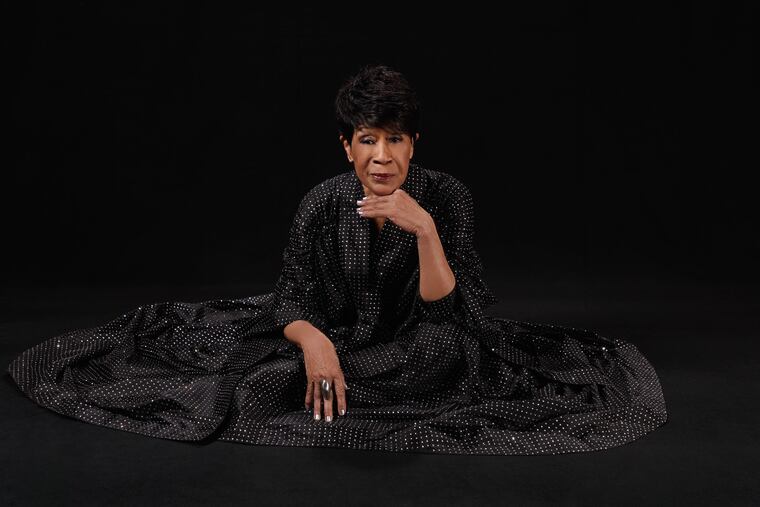Bettye LaVette’s new ‘Blackbirds’ album is searingly powerful, with deeply personal readings of ‘Strange Fruit’ and more
Bill Callahan and Dan Penn also have strong new releases.

Bettye LaVette
Blackbirds
(Verve *** 1/2)
Bettye LaVette got her start as a young soul singer who scored an R&B hit with her debut single, “My Man — He’s a Lovin' Man,” as a 16-year-old in 1962.
But the late career renaissance she’s enjoyed since the mid-00s has mostly found her interpreting rock songwriters, from Fiona Apple on 2005′s I’ve Got My Own Hell to Raise to The Who’s “Love Reign O’er Me” at the 2008 Kennedy Center Honors to her 2018 set of Bob Dylan covers, Things Have Changed.
Blackbirds, which was produced by Steve Jordan, the master drummer and bandleader who’s done sparkling work with Keith Richards and Robert Cray, again finds LaVette reshaping songs, finding new shades of meaning and depth of feeling in compositions both treasured and obscure.
This time, though, the material — with the exception of the Beatles' song that gives the album its name — comes from another source: Black women. The selections are all songs that are either written by or closely associated with female African American vocalists, most of whom had an impact on LaVette as she was coming of age.
They include Nancy Wilson’s “Save Your Love for Me,” Nina Simone’s “I Hold No Grudge,” Della Reese’s “Blues for the Weepers,” and Billie Holiday’s sorrowful “Strange Fruit,” which she gives a characteristically imaginative reading without sacrificing any of the anti-lynching lament’s searing power.
Johnny Mercer and Doris Tauber’s torch song “Drinking Again” is included as a tribute to the dynamic song stylist Dinah Washington, who recorded it 1962. But LaVette’s intimate, conversational take actually more closely resembles that of Frank Sinatra, who cut the song in 1967.
Like Sinatra, LaVette specializes in cracking open songs she didn’t write herself and turning them into wrenching personal statements. On Blackbirds, she does that by inhabiting laments and songs of resilience sung by her forebears, and making them her own. — Dan DeLuca
Bill Callahan
Gold Record
(Drag City, ***)
On last year’s excellent double album Shepherd in a Sheepskin Vest, Bill Callahan sang about the surprise of domestic bliss arriving late in life. Gold Record opens with him playing the role of the sage old married man, giving advice to a pair of newlyweds on “Pigeons”: “When you are dating you only see each other / and the rest of us can go to hell, / but when you are married, / you’re married to the whole wide world, / the rich, the poor, the sick, the well.”
The arrangements are delicate and restrained — much more so than the lo-fi, often noisy albums he started putting out 30 years ago as Smog — but they’re also subtly rich, with soft breaths of woodwinds and keyboards behind the mostly acoustic guitars.
Callahan’s deep baritone is in the forefront of these slow, patient songs; he sounds somber and earnest, but the lyrics are full of deadpan humor. He’s by far the funniest of his diaristic peers such as the cranky Mark Kozelek and the hyper-realist Phil Elverum (of Mount Eerie and the Microphones). “When I see people about to marry / I become something of a plenipotentiary,” he sings on the aforementioned “Pigeons.” “Protest Song” is a clever protest against insincere protest songs; “Ry Cooder” celebrates the great roots guitarist and asks the listener to imagine him playing a perfect solo “right here where the song grows thin.” Callahan needn’t worry: These insightful, self-aware songs rarely grow thin. — Steve Klinge
Dan Penn
Living on Mercy
(The Last Record Co. ***)
Although he’s immortalized as the cowriter of such classics as “Do Right Woman, Do Right Man,” “The Dark End of the Street,” “I’m Your Puppet,” and “Cry Like a Baby,” Dan Penn has also shown he can deliver his own material as well as anyone.
In recent years, the 78-year-old country-soul progenitor has self-released terrific albums he dubbed “The Demo Series,” but Living on Mercy is a full-scale production recorded in his current home base of Nashville and his old one of Muscle Shoals with a band complete with horns and strings.
Teaming again with some of his oldest writing collaborators, the Alabama native works his familiar territory with the easy grace of a master thoroughly in command of his craft and comfortable in his own skin. From tender ballads like the yearning “I’ll See You in My Dreams”and the reassuring “Things Happen,” and on to R&B groovers like “Clean Slate” and “Edge of Love,” Penn invariably makes what another song title calls a “Soul Connection.”
In “Down on Music Row,” a struggling songwriter is told: “Your stuff is too old-school, the world has moved on.” Penn proves again that good songs, in the right hands, defy time and fashion. — Nick Cristiano